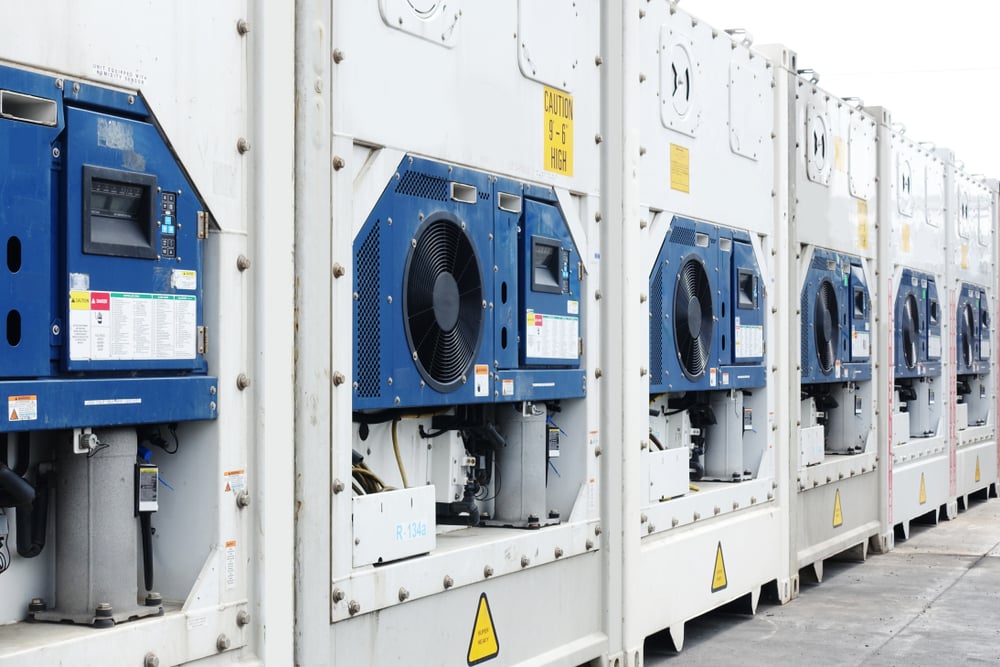REDWOOD LOGIN
Redwood PortalLTL
SCS
SCS Support
Rockfarm

Did you know that the cold supply chain accounts for more than 20% of all freight shipments across the United States each year? But, these types of shipments are also some of the most complex and fiercely regulated.
Perishable foods and several life-saving medications are the most common goods to make their way through a cold supply chain. And both of them require constant temperature control and monitoring while in transport. When these products move through the supply chain, carriers use advanced temperature-control devices and methods to ensure their safe shipping.
For most of these goods, just a few degrees out of the 'safe zone' could spell disaster.
Navigating the issues one could encounter has caused many to exit stage left, quick, fast, and in a hurry! Yes, temperature controlled shipping is serious business.
In today's post, we will discuss a couple of the most pressing limitations with temperature-controlled shipping. Our goal with this post is to spread awareness of these all too prevalent issues and help you prepare to face them head-on. The more these issues are discussed, the quicker we can begin to solve them... and that's just plain good for the whole industry.
So, get your running shoes on, we've got some hurdles to jump!
There are actually quite a few hurdles that come with the cold supply chain. The constant influx of goods that all require different environmental factors, specially-equipped trucks, and more paperwork than any sane individual would like to fill out.
However, there are 2 really big ones that we think need to be given just a bit more attention. All that other stuff is fairly routine, but the following hurdles are really beginning to affect this leg of the shipping world.
We're highlighting the following two hurdles because they are the ones that we feel most negatively impact this niche of the industry...
Unfortunately, there are simply not enough qualified carriers to keep up with increasing demand.
While the production if temperature-controlled shipping containers is growing faster than ever, there is one problem. In order to make use of those containers, you need enough trucks to carry them.
Unfortunately, there is currently a real-world crisis that many supply chains are dealing with; a lack of qualified drivers. Whether it is due to an aging demographic, or difficulty trying to hire and train new replacement CDL drivers, the fact remains that the driver shortage impacts the entire industry. As a matter of fact, NPR wrote an article talking about this very thing just a few months ago. If you haven't stumbled across that article, go give it a read here.
Ultimately, what the problem boils down to is that older truck drivers are retiring in high numbers. But the new generation is simply not as interested in driving a truck for a living. There are many contributing factors to that stance. Trying to remedy this problem, many companies now offer rates, bonuses, and other incentives that were unheard of just a few short years ago. But even with all the new incentives and much higher pay, shippers are still struggling to find qualified drivers as the years go on.
I suppose the takeaway here is that with every passing year there are fewer CDL drivers out there and shippers would be wise to treat them like gold when they find a good group of drivers.
Protecting the well-being of its citizens is the primary responsibility of our federal government. And when it comes to the movement of temperature-controlled goods, regulations on food safety are a good thing to have.
The Environmental Protection Agency and the FDA continue to strive for increased regulations on food safety and temperature-controlled shipping. As this happens, it is up to manufacturers, retailers, and all those involved in the cold supply chain to adapt to these evolving changes without skipping a beat.
To stay in line with current laws and regulations, you need to do your due diligence. Visit the EPA or FDA websites regularly and stay on top of any changes that affect your operation. It is far too easy to overlook things with how fast laws change these days. But one misstep or failure to get your supply chain compliant could land you and your company in legal trouble rather quickly.
Temperature-controlled shipping is one of the most important sectors of the shipping industry, but it has some issues. While most of those are fairly basic, the two that we've discussed in this blog post impact the industry in a big way.
If you are having trouble navigating these same issues, reach out to us today! Thanks to our large network of carriers, years of experience, and a dedicated crew, Redwood Logistics can get you compliant by the end of the week!